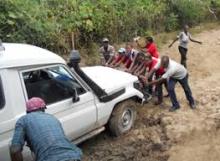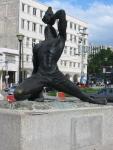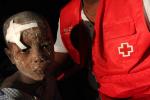Documentary: Deadliest Roads (Haiti)
Many of Haiti's roads are terrible - some major routes have been improved but overall it is far behind its Latin American and Caribbean neighbors. Roads are important for the economy, getting goods to and from regional markets, for public health, getting people to health care facilities when they need care, and for disaster preparedness/response, being able to get national and international responders/commodities to where they are most needed. Due to the rough conditions, travel is more difficult and expensive than it should be. To get a better sense of what it is like to be a passenger or driver in Haiti, check out the documentary "Deadliest Roads: Haiti".




